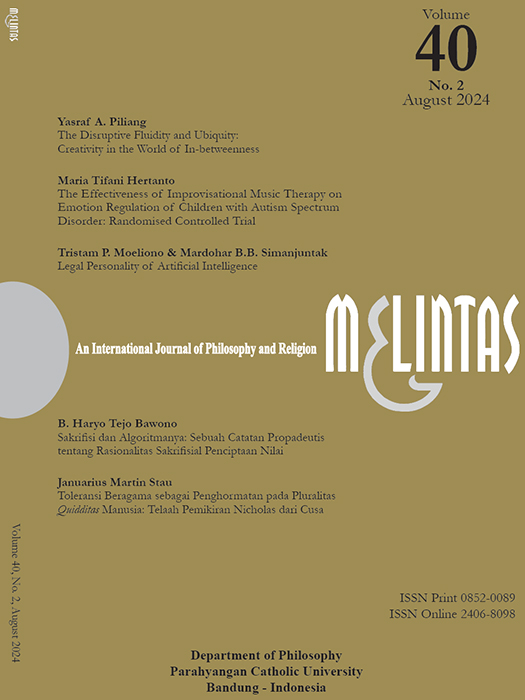The Effectiveness of Improvisational Music Therapy on Emotion Regulation of Children with Autism Spectrum Disorder: Randomised Controlled Trial
DOI:
https://doi.org/10.26593/mel.v40i2.8647Keywords:
music therapy, musical improvisation, emotion regulation, children with ASD, autism, perception buildingAbstract
Children with Autism Spectrum Disorder (ASD) show deficits in social interaction and social communication. There are some physical and psychological problems. Some children with autism spectrum disorder exhibit difficulties in expressing their emotions. However, emotions play a crucial role in social interaction and communication. Various music therapy methods have been developed to support emotional expression in this population, one of which is improvisational music therapy. This study was aimed to know the effectiveness of improvisational music therapy for children who were diagnosed with autism spectrum disorder in terms of emotion regulation. The design of this research is a quantitative method using randomised controlled trials (RCT). Pre- and post-tests were used in this study. The tool of this research is the Difficulties in Emotion Regulation Scale (DERS). The result of this RCT maps the effectiveness of improvisational music therapy for emotion regulation. Improvisational music therapy can be used by children to express their emotions freely. This study demonstrates that participants were able to regulate their emotions and exhibited significant positive changes in perception building. The findings suggest that improvisational music therapy can be a valuable intervention for other populations experiencing difficulties with emotional regulation and a means to find connections between the mind and the events in the real world.
Downloads
Published
Issue
Section
License

This work is licensed under a Creative Commons Attribution-NonCommercial 4.0 International License.
MELINTAS applies the Creative Commons Attribution (CC BY NC) license to articles and other works we publish. If you submit your paper for publication by MELINTAS, you agree to have the CC BY NC license applied to your work.


